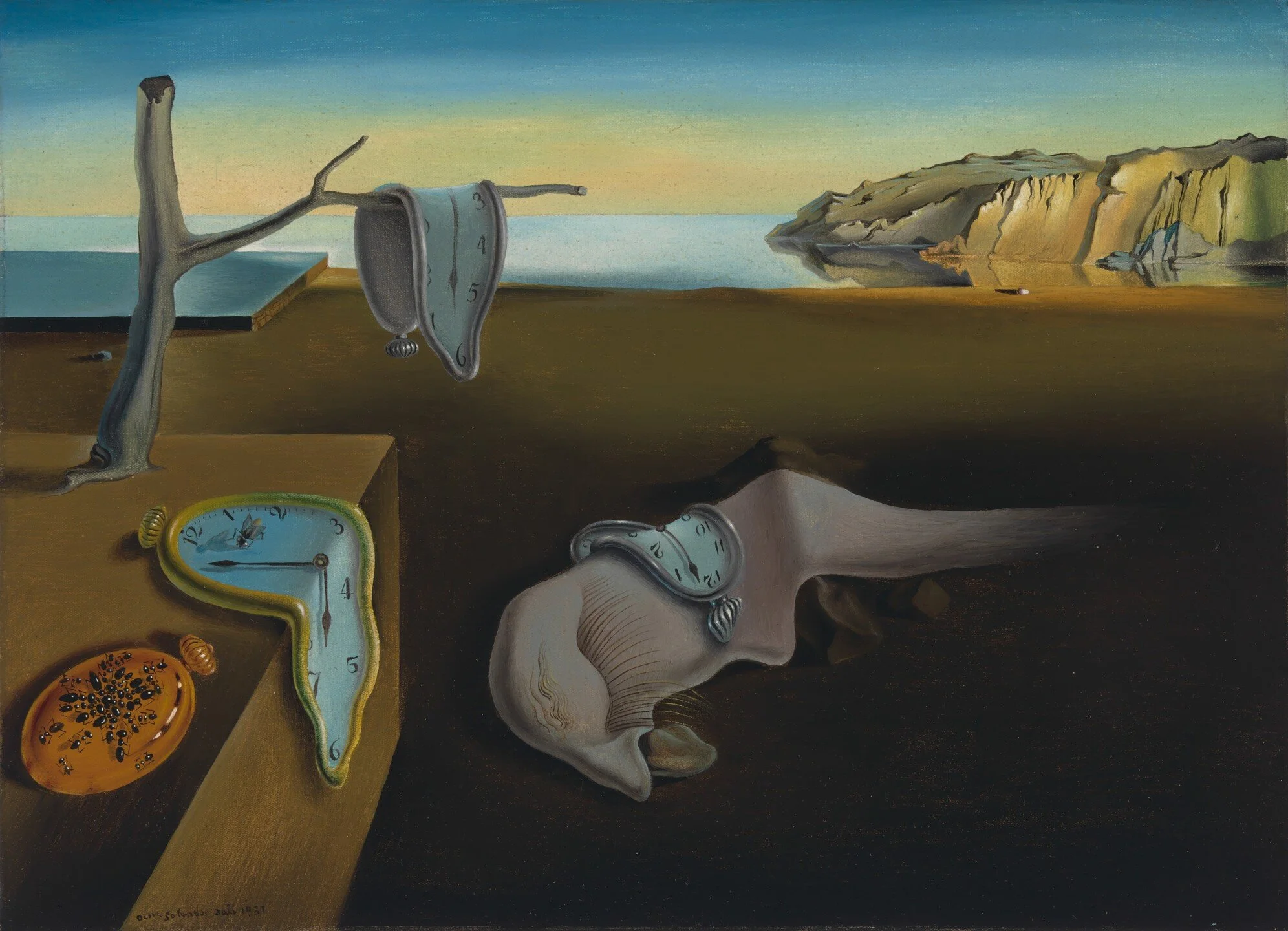Have you ever seen a painting depicting someone’s face melting off? Or seemingly random objects placed together in one painting, unexplainably distorted? If you have, they may have been surrealist paintings, created by some of the most famous artists of the 20th century.
Surrealism is a genre of art that started around the 1920s and reached peak popularity in the 1930s. It's characterized by strange, often unsettling images that make the viewer question reality. Surrealist artists have been known to describe their work as philosophical, with the images they produced being irrational and unconventional on purpose.
Image: The Persistence of Memory, Salvador Dalí, 1931. Via MoMA.
But what better way to learn about this genre than to look at a few paintings? Perhaps the most famous surrealist painter is Salvador Dalí, known around the world for his impeccable skill paired with bizarre imagery. The Persistence of Memory, painted in 1931, depicts clocks melting into a landscape of Catalan, Spain, Dalí’s home. Dalí’s intention here has to push the viewer to question the very essence of time. In the bottom right corner, one of the clocks is covered in ants, symbolizing death and decay. This painting has become the unofficial mascot of the surrealist genre, as it's one of the most recognizable in the world. Dalí returned to the use of the clock motif in several of his future works.
Image: The Treachery of Images, René Magritte, 1929. Via WikiArt.
Belgian artist René Magritte, arguably my favorite surrealist artist, was also active during the same period as Dalí. In a few of his paintings, Magritte uses words, a unique and unusual element. Words aren’t a very common element in paintings, but Magritte’s use of them gives what would be a regular image a surrealist spin. This is seen in The Treachery of Images, also known as This is Not a Pipe. The sentence in the painting translates from French, as the title suggests, to “This is not a pipe”. This painting best highlights one of the main underpinnings of the surrealist genre, the conflict between truth, reality, and fiction.
Image: Maternity, Dorothea Tanning, 1946-1947. Via Dorothea Tanning.
Although the movement started in western Europe, it spread around the world fast. Some of the most impressive surrealist artists were American. Dorothea Tanning, a painter from Illinois, created works like Maternity. While maybe not as extreme in her imagery as Dalí or Magritte, it still possesses similar philosophical elements. In Maternity, for example, Tanning addresses her positionality as a female painter, an occupation which required choosing between raising a family and being in the studio. Obviously, Tanning chose the latter. The white puppy in her painting features the face of a child, showing that the dog replaced her needs for children.
While many argue that the surrealist period ended around the 1960s, others say that it continues to be a significant part of the artistic world to this day. What we do know for certain, however, is that this movement influenced many aspects of life beyond painting, reaching into philosophy, politics, and other forms of art.
Surrealism is one of my favorite art styles. I love how striking and unsettling the paintings are while retaining familiar images of reality. I hope that you will find some similar beauty that I see in surrealism, and maybe even venture out into a museum and see some surrealist art in person for yourself.
ABOUT THE AUTHOR
Maya Sobchuk is a third-year at Macalester College in Minnesota studying international law and international relations theory. She is from Kyiv, but grew up in Los Angeles, California. She has previously worked for the Kyiv Post, is the Web Editor for her college newspaper, and is involved with Ukrainian-American causes in Minnesota. Maya is particularly interested in the post-colonial space, multilateral diplomacy, and disinformation.




